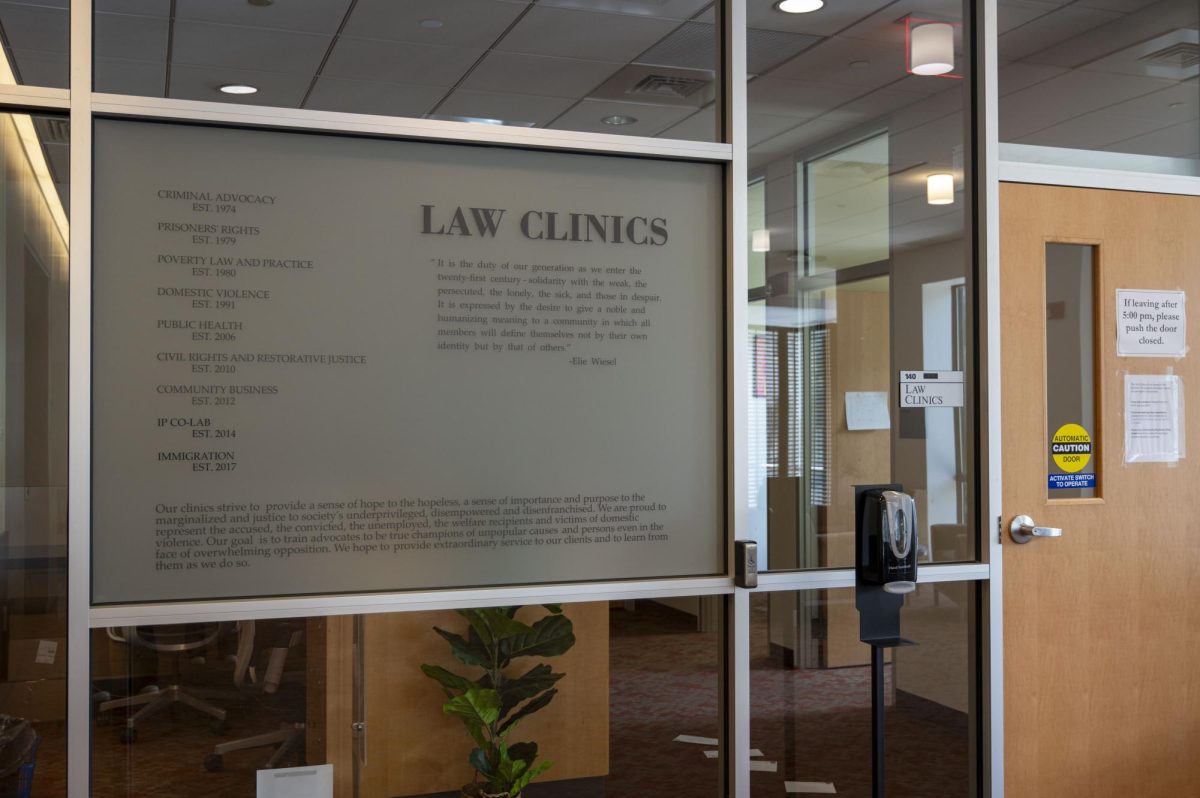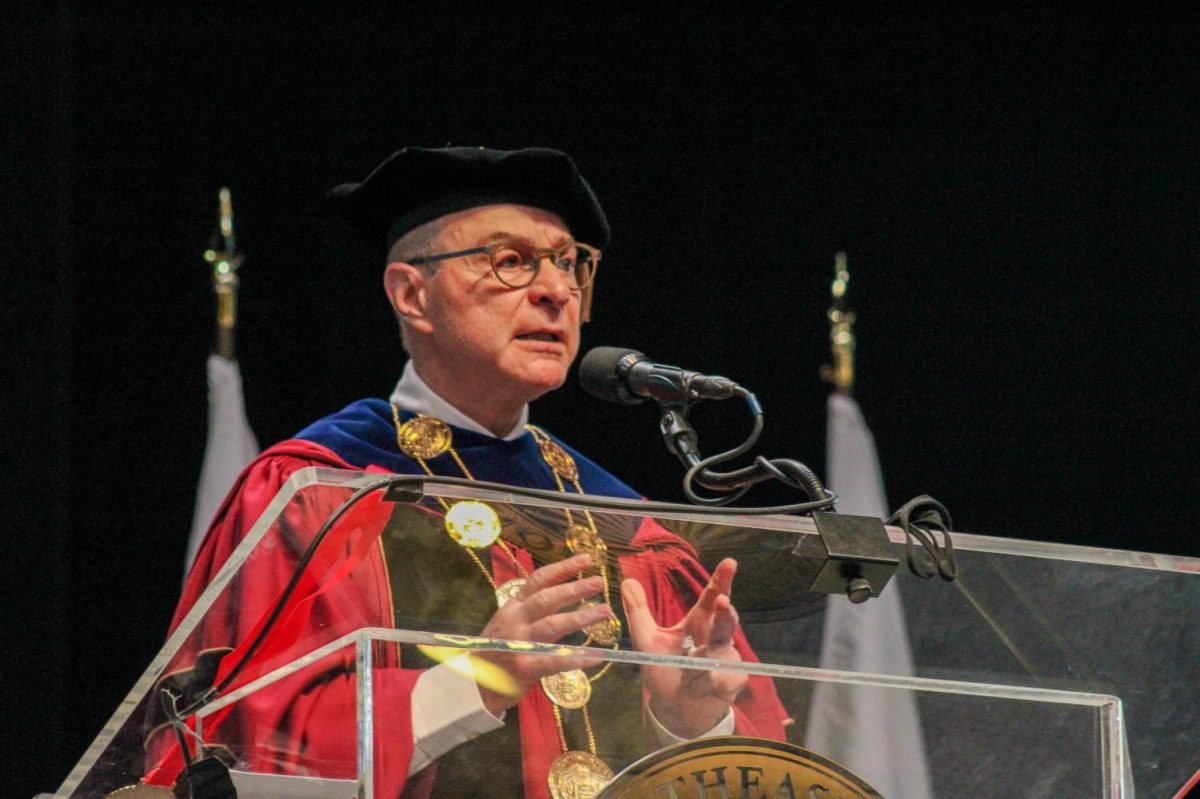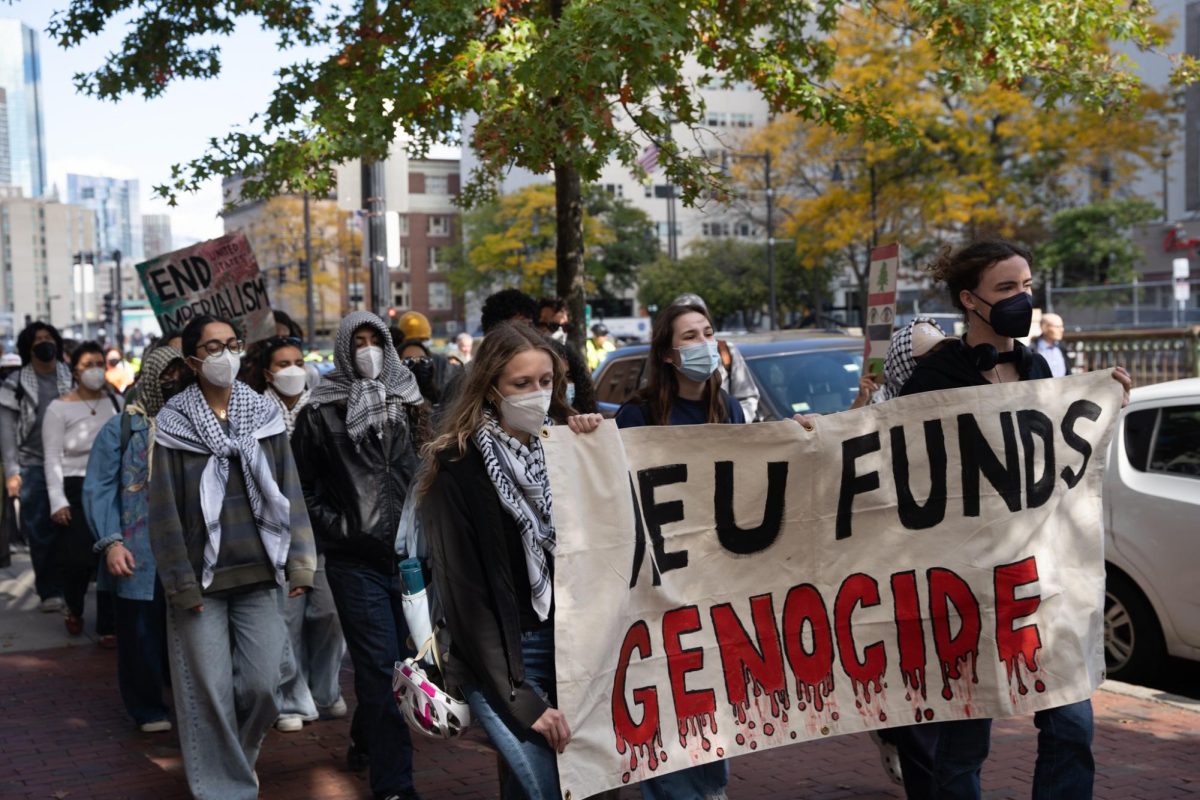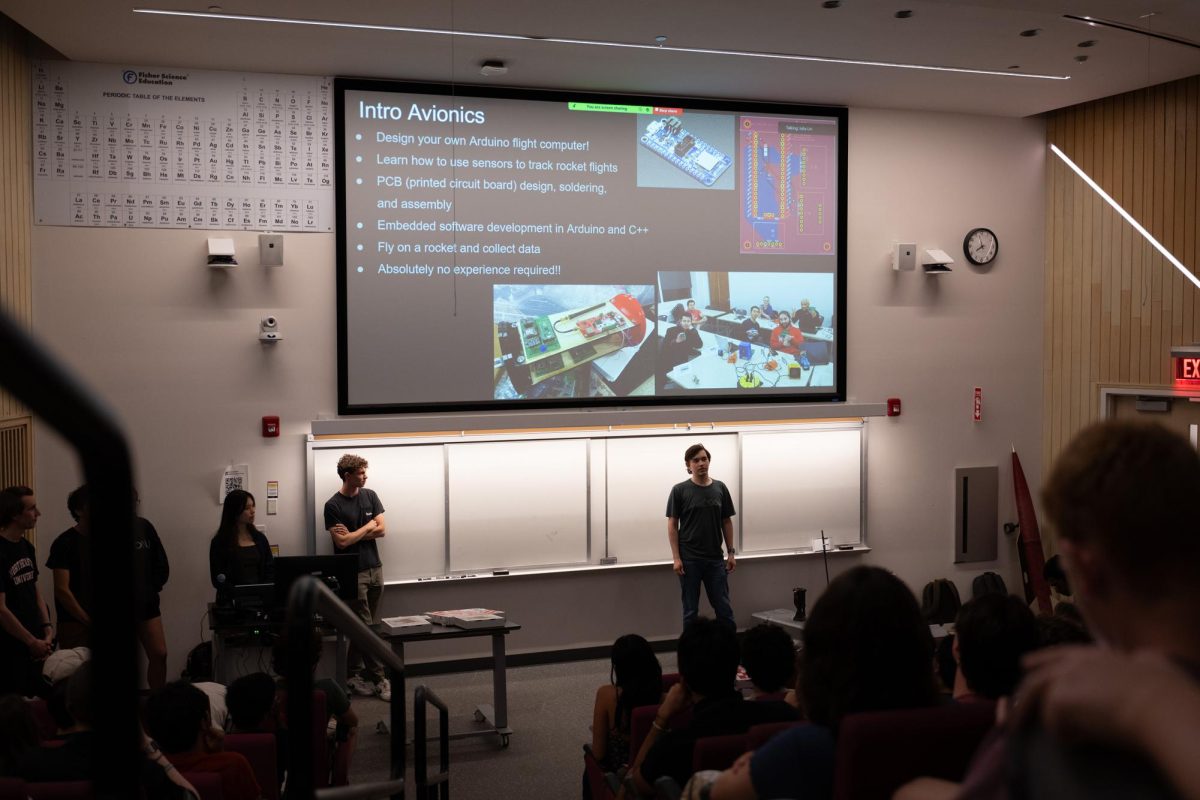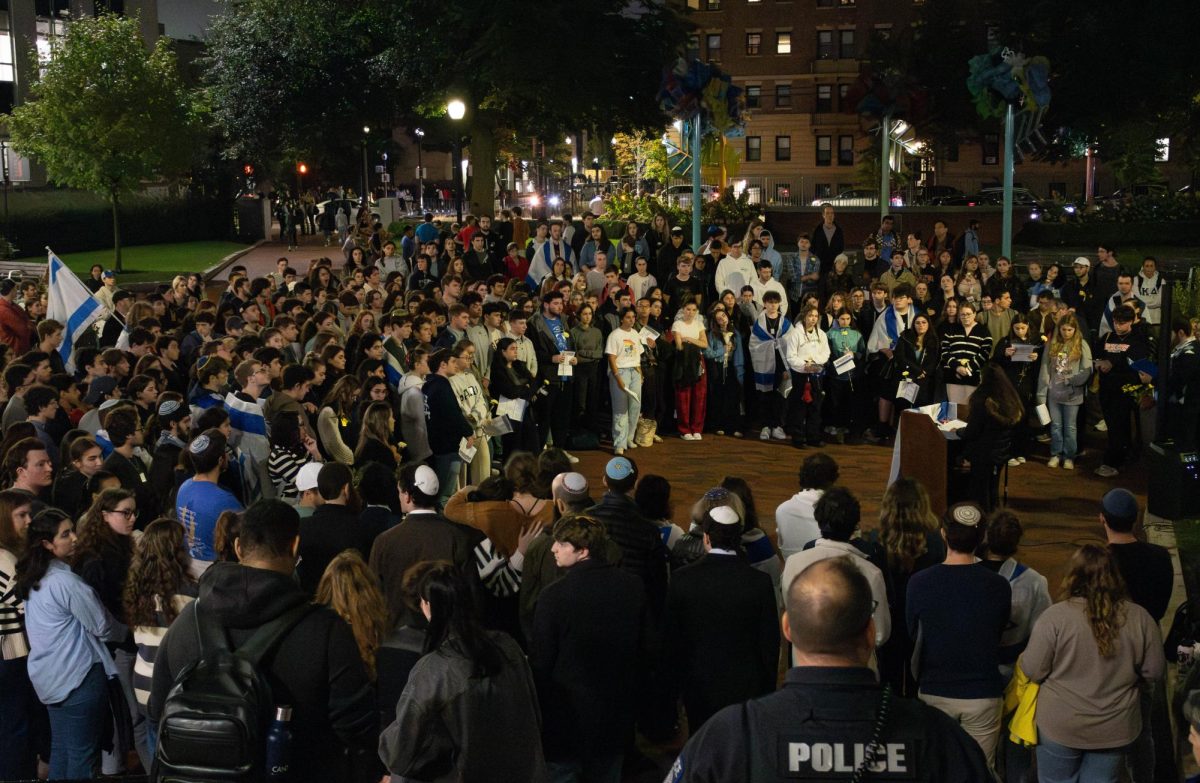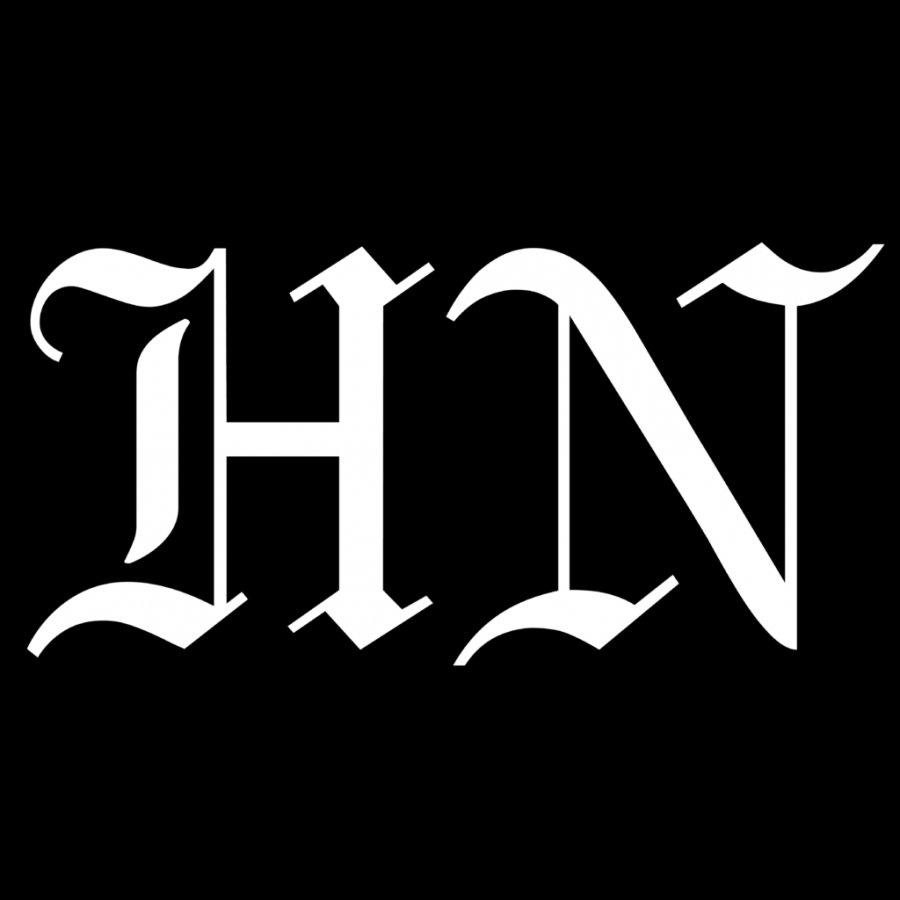By Daniel Stoller
A recent study conducted by the Institute on Urban Health Research, an on-campus organization focusing on HIV/AIDS research, found high rates of unprotected sex among Northeastern’s undergraduates, said Hortensia Amaro, director of the institute.
“We took a representative sample of the students,” she said. “What we found was that almost half of students were having unprotected sex.”
The release of the findings coincided with World AIDS Awareness Day, last Saturday.
Many student groups, including the Females’ Center of Excellence and Leadership (Xcel), Northeastern University Bisexual Lesbian and Gay Association (NUBiLAGA) and the Northeastern African Student Organization (NASO), among others, collaborated to sponsor programming which began the week prior to Dec. 1.
“We were planning an event for the week before World AIDS Day,” said Margaret Kamara, president of NASO. “And NUBiLAGA was planning events for the week after. So we combined the two.”
NASO held a variety of activities, beginning with a movie night Nov. 26. The documentary, “A Closer Walk,” was narrated by Glenn Close and Will Smith, and looked at the international AIDS crisis.
The Sidney Borum Jr. Community Health Center was brought on campus to offer free HIV/AIDS testing to students. Using just a mouth swab, the tests were confidential and students will be able to pick up the results on campus, Kamara said.
The Cape Verdean Student Association organized a fashion show Nov. 30 called FASHIONably Aware in conjuction with NASO. At the show, the group sold T-shirts to raise money for AIDS awareness.
Amaro and the Institute on Urban Health Research hosted an event Nov. 30 featuring the History Project, an advocacy and research group for those with HIV/AIDS in the Boston-area GLBT community.
The History Project, which began in Boston in 1980 as a support and archival group for the Gay, Lesbian, Bisexual and Transsexual (GLBT) community, became more focused on HIV/AIDS work and historical documentation after the community began to recognize how the new disease was affecting them, Amaro said.
What made the event special was that it premiered the installation of a History Project archive in the Northeastern library, Amaro said. That archive includes studies and surveys done on HIV/AIDS, as well as historical documents and interviews drawn from the project’s work in the GLBT community.
Caitlyn Keckeissen, a senior English major and president of NUBiLAGA, said she has witnessed a growth in on-campus events for World AIDS Day in her time as a student.
“I didn’t really hear about it my first two years … it has really blossomed since I’ve been here.” she said.
On AIDS Day, NUBiLAGA organized, with CVSA and Alternative Spring Break Alabama, an event that ended in a rally. The group first went to Medicine Wheel School in South Boston for an event that helped spread awareness of youth HIV/AIDS.
“They have 20,000 gallons of water in buckets. This represents the 20,000 new HIV cases contracted by youth this year,” Keckeissen said. “Every hour, on the hour, they, with various groups, carry buckets up the hill to the Charles River.”
NUBiLAGA’s week of events, titled “No Face, No Race,” hopes to put forward the view that AIDS is a “human disease,” Keckeissen said. “What bothers me is that people often take the person out of the disease.”
Kamara echoed his concerns.
“AIDS has no face. I can’t tell you from looking at someone if they have AIDS,” she said.
Two other movie nights will be featured on Tuesday and Wednesday, both featuring movies dealing with HIV/AIDS culture.
One sorority also hosted an event for World AIDS Day. Alpha Epsilon Phi worked with Husky Express to host a dodge ball tournament, said junior Lauren Steingold, the sorority’s vice president of programming.
With a donation suggested for every contestant, and the ability to pledge money in the name of a team, the tournament awarded prizes to the tournament’s winner, the team with the best uniform and the team that raised the most money. Open to the entire campus, the event raised $1,000, twice what was made last year, Steingold said.
“There are still a lot of obstacles facing [AIDS awareness work],” Amaro said. “There’s been lots of progress made in the treatment of AIDS and many people may assume it’s not as critical. But it is.”


